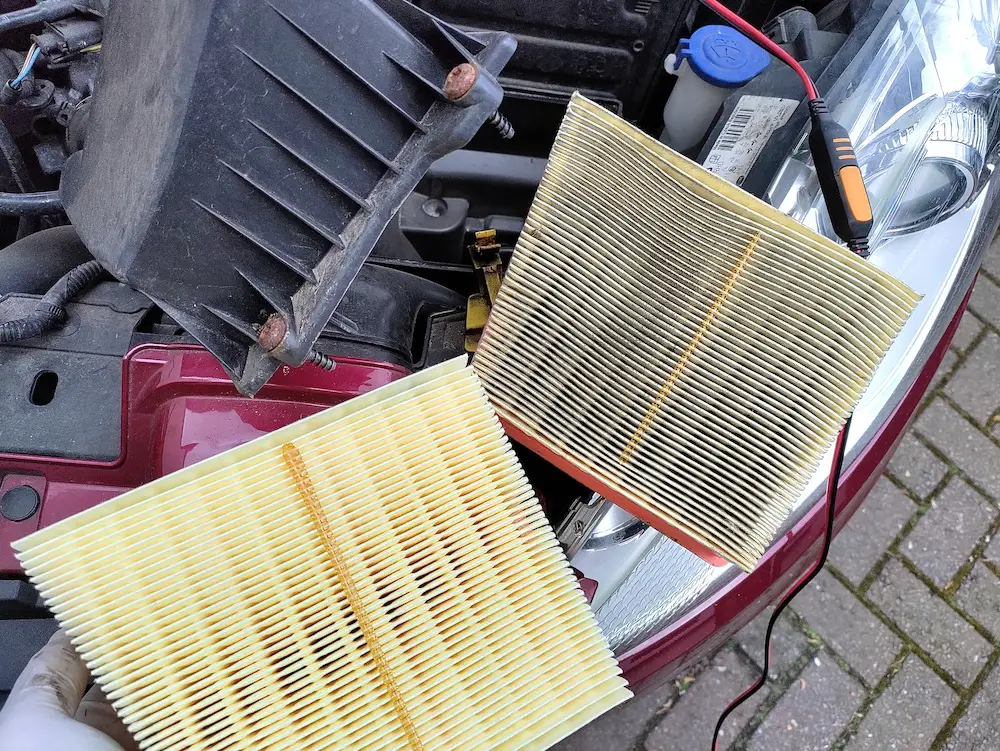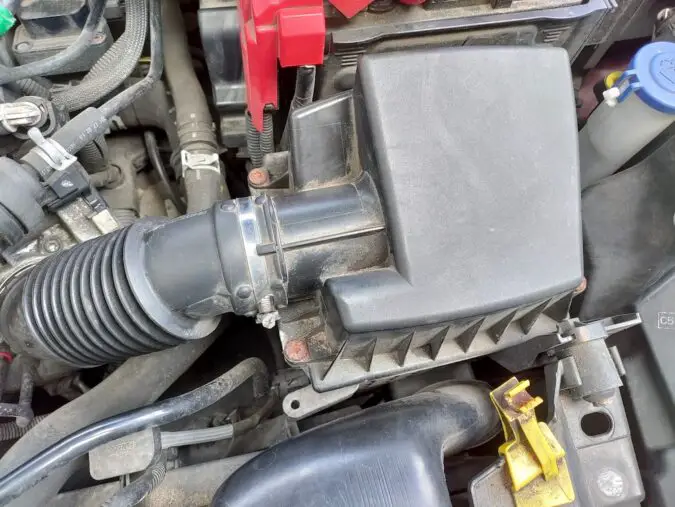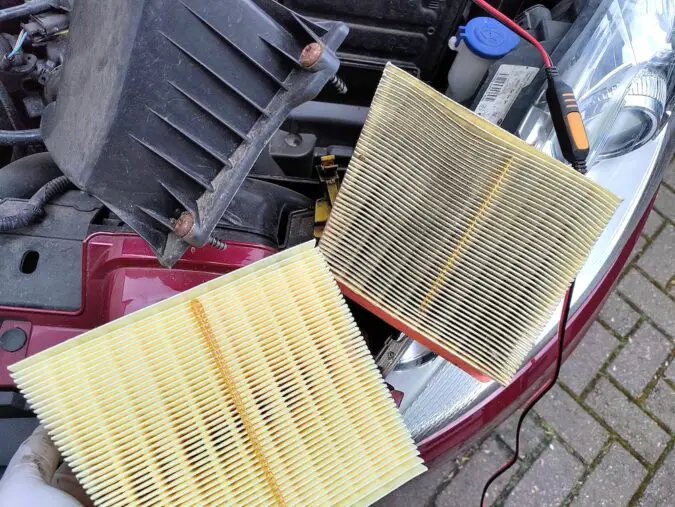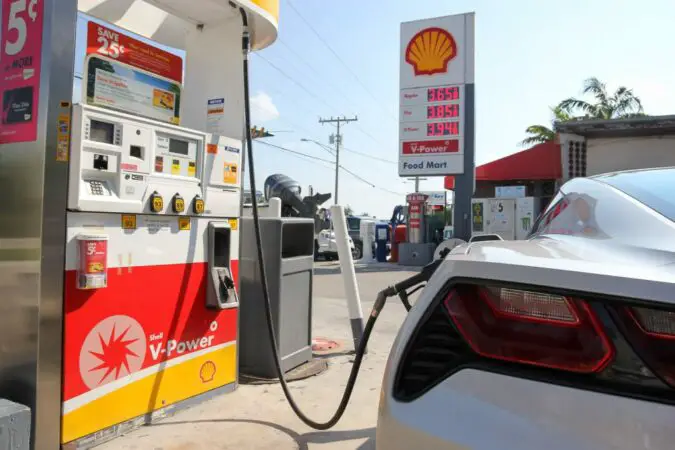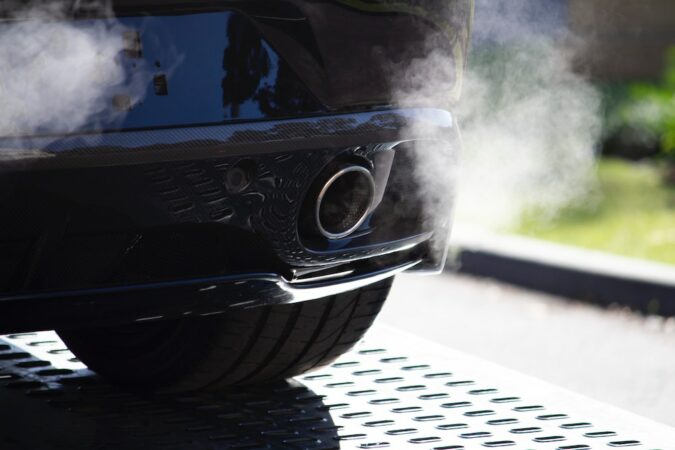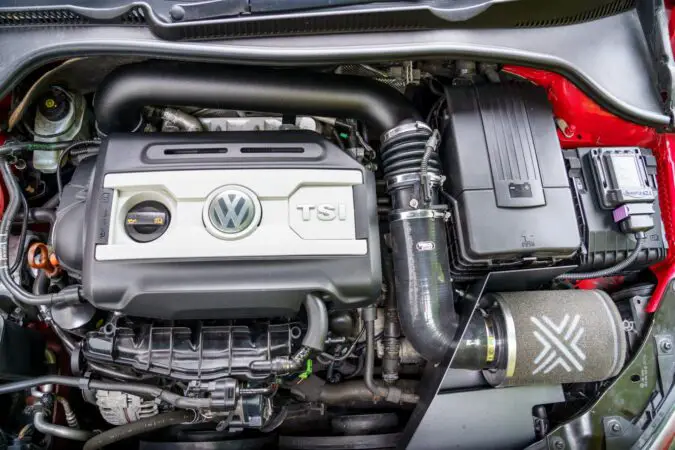In this article, we will be discussing the respiratory system of an engine. More specifically, how it breathes via an (engine) air filter. First, we will journey through the different types of air filters including aftermarket and stock air filters. Then we shall take a deeper look into the dirty air filter symptoms as well as the engine air filter cost.
- What Is An Engine Air Filter
- Cabin Air Filter
- Cold Air Intake
- What Can Cause An Engine Air Filter To Fail
- Dirty Air Filter Symptoms
- Benefits Of Changing Air Filter In Car
- Engine Air Filter Replacement Cost
- Cabin Air Filter Replacement Cost
- Engine Air Filter Cost FAQs
Before moving on to the engine air filter cost, let’s first understand what an engine air filter is. This will help us understand the main responsibility of an engine air filter on an even better level.
What Is An Engine Air Filter
An engine air filter is a rectangular braided filter sitting in a piece of a plastic box. Simply put, it draws in dirty air and filters it which then channels to the intake manifold. The clean, filtered air then goes to the engine cylinders for the combustion process.
Think of an engine air filter as a face mask. A face mask prevents polluted air from entering your respiratory system, hence allowing your organs to function perfectly. An engine air filter works in exactly the same manner. It prevents dirty air from entering your vehicle’s motor and causing any harm to it.
Mostly, you’d find an engine air filter closer to the intake manifold and just before the throttle body. Also, almost all cars that you see on the road have a paper-coated filament in their air filters.
As the air gets filtered through the air filter, it goes through a MAF (Mass Air Flow) sensor. A MAF sensor is responsible for measuring the volumetric flow of air before it reaches the intake manifold.
With the help of a cold and hot wire, the MAF sensor transmits variable data in terms of voltages. The data (or voltages) is then sent to the ECU. The ECU then has to determine how much fuel needs to be injected into the cylinders depending on the flow of air passed on from the air filters.
Since engines produce extreme temperatures, a plastic housing encases these filters and offers protection against the warm air. More importantly, the air filters are able to provide somewhat cooler air to the intake manifold which is denser.
And denser air enhances engine performance by allowing it to breathe comparatively more in a single stroke. This is where cold air intakes come in, but let’s save that for later.
Cabin Air Filter
I bet many people mistake an engine air filter for a cabin air filter. In fact, many may not even know where to locate a cabin air filter. Whereas, in reality, both these air filters act very differently despite doing the same job. And that is filtering clean air from filthy, contaminated air.
As we discussed, an engine filter is responsible for channeling clean, filtered air to your engine. On the other hand, cabin air filters clean air for the vehicle’s climate control. It does so by rinsing away any dust particles or other contaminated air particles that are injurious to health.
In return, it provides clean and breathable air to the vehicle’s occupants through the climate control system (or the vehicle’s HVAC system).
The location of a cabin air filter may vary depending on your car’s model and make. In most cases, you can locate a cabin air filter right under the interior glovebox. Meanwhile, in other vehicles, the cabin air filter can be found sitting underneath the windshield.
Now the paper filament in these filters can become clogged with dust and various other contaminated particles. A cabin air filter can only filter enough (clean) air before it starts to trap dust particles. This is why they need to be serviced every 30,000 miles.
Failure in doing so will result in serious mishaps and even death or suffocation. A clogged air filter will transmit contaminated air into the vehicle’s HVAC system, which can be extremely dangerous to your health.
Common symptoms of a dirty cabin air filter include an unnatural odor inside the cabin, Increase in dust particles inside the cabin. Also, if you feel any sort of suffocation in your vehicle, chances are that your cabin air filter is faulty and needs replacing.
Cold Air Intake
Chances are that most of the engine air filters that you’d see are kept hidden from the human eye. That’s because they are protected by a plastic box that prevents hot air from creeping into the air filter. Since hot air is less dense than cold air, it holds less oxygen. The lesser the oxygen available to your engine the worse it’d perform.
This is why cold air intakes exist. It takes the equation out of the question and positions itself further outside the engine compartment. This allows cold air intakes to draw in cooler air which is much denser and holds more oxygen. In cooler air, the molecules are closely bonded with each other, hence providing more oxygen for the combustion process in a single cycle.
Cut short, it means that your vehicle’s engine performance and driving dynamics improve by some margin. Also, it removes any plastic box to encase the filter, thus allowing the filter to draw more air. Plus, you get to hear that sweet intake noise as you floor the car, which is (always) a treat to the ears.
Cold Air Intake vs. Stock Engine Air Filter
There’s no denying the fact that a cold air intake can have an impact on a vehicle’s driving dynamics. You can feel definitely feel the improvement in the throttle response and acceleration of the car. In addition, cold air intakes are known to improve fuel efficiency all thanks to the dense air it draws.
Moreover, by removing the plastic box from the equation and installing bigger and longer pipes, the intake is able to emit that sweet sound. This alone may be the reason why people ought to buy a cold air intake.
With that being said, a cold air intake may not always work out for you as expected. This is because, in order for a cold air intake to work as intended, you’d need other engine upgrades as well. These engine upgrades can cost a lot depending on your vehicle’s model.
Also, the fact that cold air intakes themselves cost comparatively more expensive than stock air filters will be burning a hole in your pocket. For reference, a cold air intake can cost anywhere between $100 – $1,500. So, question yourself this before buying one of these: is it worth spending over $1,000 for an extra 13 horsepower?
Similarly, it can be difficult to install cold air intakes on modern engines that are filled with technical bits and pieces.
Also, because cold air intakes are placed further outside an engine compartment, they can become waterlogged easily. Even though it can become mildly wet, too much water will eventually hydro lock your engine. This is the last thing you’d want because once too much water enters the combustion chambers, you’d have to say goodbye to the engine.
This is the only gripe of a cold air intake… which sucks. Pun intended.
What Can Cause An Engine Air Filter To Fail?
Some of the reasons behind a faulty, or dirty, engine air filter are:
1. Accumulation Of Dirt
One of the most common reasons behind a dirty air filter is well, of course, dirt accumulation. Although the plastic box does its job of blocking as much dust as possible, some dust eventually enters the filter Also, it’s not something to fret or worry about as almost all air filters need cleaning or changing at least some point in their lives.
2. Waterlogged Filter
A stock air filter box does all it can to prevent water from entering the air filter. That said, the box is not airtight otherwise how’d the filter draw air? This is why on extremely wet surfaces chances are that water may enter the air filter housing. It mostly occurs in cases where the vehicle is wading through a water-packed road or deep water.
Because the air filter is a mere paper (or sometimes cotton) filament, it’d absorb that water and eventually clog the intake. The engine air filter won’t be able to do its job as intended, hence wreaking havoc on the engine. Although the combustion chamber can take some water and maybe even clear up its carbon buildup, too much water will cause damage to the engine.
3. Poor Filter Box Fitment
Reasons such as accidental damage, (sudden) physical impact, or improper filter servicing, can render the filter box loose. The filter would become vulnerable to severe heat temperatures and cause the filter to draw in warmer air. Also, a loose filter box will allow dust particles to creep into the filter more easily.
Even though this may not have any short-term effects, the longevity of the air filter decreases over time. All these reasons prevent the engine filter from working as intended whilst also causing harm to it.
Dirty Air Filter Symptoms
Before finally moving on to the engine air filter cost, let’s quickly go through some common dirty air filter symptoms. All the above-described reasons account for a faulty, or dirty, engine air filter. Obviously, a lack of oxygen due to a clogged engine air filter can choke the engine and drastically affect the engine’s performance.
Let’s see how exactly you can identify these changes in the form of symptoms.
1. Lack Of Acceleration
In the case of a dirty (or clogged) air filter, you immediately begin feeling a lack of acceleration by a margin. A clogged engine air filter blocks the clean air from entering the engine cylinders for the combustion process to take place.
https://www.youtube.com/watch?v=kdiEoBPkY_8
Since there won’t be enough air-fuel mixture, the engine won’t be able to fulfill the demand for power as intended. So, whenever you feel as if your engine isn’t performing as it did before, you should get its air filter checked.
2. Poor Fuel Average
A dirty air filter abrupts the supply of oxygen to the engine. For the combustion process to take place, there should be an ideal amount of air and fuel in the cylinders. Only then can the mixture of these two be compressed and then ignited with the help of a spark plug.
However, since there won’t be enough air (or oxygen) necessary for the combustion process to take place, the engine would be running rich. This means that more fuel is being injected into the cylinders backed by less amount of air provided by the dirty air filter.
As a result, the ECU (Engine Control Unit) would not be able to maintain the 14.7:1 stoichiometric air-fuel mixture ratio. The ECU does so in order to achieve maximum fuel efficiency. However, a dirty engine air filter prevents that from happening, and the fuel average goes down the hill.
So, if you are feeling a lack of acceleration and a lower fuel average, your engine air filter needs replacing.
3. Car Overheating
There’s no doubt that a dirty engine air filter prevents the engine from functioning as efficiently as possible. Not only does it overburden the engine, but it also causes the engine to run rich. Eventually, the engine starts overheating causing the ECU to throw an ‘engine temperature’ warning on your dash.
In some cases, it may even throw a ‘check engine light’ on your dash. So, if you are seeing any sort of warnings, whilst also feeling a sluggish engine response, then your air filter needs replacing.
4. Reduced Emissions And Tailpipe Smoke
A dirty or clogged engine air filter causes the engine to run rich by preventing the smooth flow of oxygen to the cylinders.
After the combustion process, the engine has to let go of the leftover residue of the air-fuel mixture. The residue is in the form of a series of common pollutants such as carbon monoxide, nitrogen dioxide, and other hazardous chemical substances.
These pollutants are channeled from the exhaust manifold to the catalytic converters, which then rids them of any impurities. The smoke finally exits the system in the form of (white-bluish) steam from the tailpipes.
However, a dirty engine air filter disrupts the above-described procedure. Because the dirty air filter causes a rich fuel mixture in the engine, even more pollutants begin forming. The exhaust’s extreme temperature then burns these pollutants.
Eventually, the exhaust system including the catalytic converter – is placed under pressure. This is why you’d see black smoke exiting from the tailpipes indicating that your engine is running a rich air-fuel mixture ratio.
All this gives a setback to the emissions which can be the reason why you keep failing emission tests. So, if you are noticing an excessive amount of black smoke leaving your tailpipes, chances are that your air filter is dirty.
Benefits Of Changing Air Filter In Car
Going from a dirty (or clogged) air filter to a cleaner air filter has several noticeable advantages. For instance, improved throttle response and engine performance.
Having a clean air filter is as important as eating healthy. Undoubtedly, eating healthier helps you to live longer. Likewise, a clean supply of air helps the engine function as intended, hence increasing its longevity. A filtered and cleaner air would help the engine maintain the ideal fuel-mixture ratio necessary for the combustion process. This is followed by a quicker throttle response and improved acceleration.
Also, by increasing the engine’s longevity, you can mark yourself safe from any engine-related expenses in the long run. There’s nothing better than driving with peace of mind and not worrying that your engine may collapse at any moment.
Similarly, changing an engine air filter can improve fuel efficiency by a great margin. Newer air filters prevent the engine from running too rich or too lean. This helps the ECU achieve the required air-fuel mixture ratio that is necessary for optimum fuel consumption.
This means the right amount of fuel mixes with the right amount of oxygen provided by the air filters. Eventually, there’d be less fuel consumption. We learned how exactly you can replace an engine air filter, but what about the engine air filter cost? Let’s find out.
Engine Air Filter Replacement Cost
An engine air filter cost can vary depending on your vehicle’s make, model, and even the type of air filter (intake) being used. For instance, some vehicles may have a factory-installed cold air intake whilst others would have a stock paper-fitted air filter intake. Cold air intakes are very expensive as they have to undergo significant engineering in their development process.
That being said, if you are looking to replace your engine air filter, expect a cost of around $50. But, if you want to go big and install cold air intakes, you should be expecting a cost ranging from $100 to $1,500 for better quality cold intakes.
Engine Air Filter Replacement
Say that you have identified some of the above-described symptoms and you are absolutely sure that the air filter needs to be replaced. The first question that should come to your mind is should I replace the filter at home? Or, do I need to pay a visit to the mechanic?
Cut short, you should replace the engine air filter at home. Changing an air filter can be as easy as adding washer fluid to the car. In fact, you don’t even need an impact gun to open the filter air box. You only need to locate the engine air filter box and unclamp the pins holding the box on each side. This will give you access to the air filter.
Next, safely pry out the old dirty air filter and replace it with the newer one. Make sure the filter is in its right place and place the airbox back on. Now, clamp the pins back in their place until you hear a click, and you should be good to go.
Cabin Air Filter Replacement Cost
A cabin air filter replacement cost can vary depending on your vehicle’s model, make, and type of cabin air filter. Some vehicles may have a much more advanced whilst other vehicles may have better quality cabin air filter filaments like cotton.
For reference, you should be expecting a cost of up to $60 for an average cabin air filter from Toyota. And that’s by being generous. In some cases, you can grab a cabin air filter for as low as $30. However, you shouldn’t do so.
Cheaper cabin air filters are a step down in terms of air filter quality. Sometimes, the filament can be too thick, while in other cases, the paper (or cotton) air filter quality may not be up to mark. Driving with a clogged cabin air filter can be extremely dangerous for the car occupants. This is why it is better to spend an extra $30 on an OEM cabin air filter than to compromise your health.
Engine Air Filter Cost – FAQs
How Often To Change Air Filter In Car
it is best to change the engine air filter every 30,000 miles or so. This is mainly because of the dirt buildup in the engine air filter over time. However, you may need to replace the engine air filter at quicker intervals if you frequently drive in dustier and sandier areas. Then, the filter would have to work extra hard to filter out clean air for the engine.
How Much Does An Engine Air Filter Cost
The answer to an exact engine air filter cost figure is not direct. The cost can vary depending on your vehicle’s make and model. However, you can expect a cost of up to $30 – $40 depending on your car’s model, air filter rarity, and air filter intake type. Likewise, most modern cars use factory-equipped cold air intakes which are comparatively more expensive than stock engine air filters. Their cost can vary from $50 to $1,500 for better quality cold air intakes.
How To Change Air Filter In Car
Changing an engine air filter can be as easy as ABC. All you need to do is locate the air filter airbox which is near (or before) the intake manifold. Next, uncouple the airbox by unclamping the pins holding the airbox in place from each side. This will give you access to the air filter, which you can safely pry out and replace. Also, make sure to clamp the pins back together until you hear a solid click indicating that the air filter is in its place.
What Does A Cabin Air Filter Do
The cabin air filter is responsible for providing clean and breathable air to the vehicle’s occupants, it does so by filtering out dirty, unfiltered outside air and channeling it through the climate control system (or the vehicle’s HVAC system). Cabin air filters are the reason why you don’t feel suffocated in your car when you have your windows rolled up and the AC blasted on. Also, it prevents any unnatural outside (or even engine) odor from entering the vehicle cabin.
What Happens If You Don’t Change Your Air Filter
Failure in replacing a dirty air filter on time can result in your engine running too rich. This is because a dirty air filter prevents (or even blocks) oxygen from entering the cylinders for the combustion process. As a result, a lesser than ideal amount of air mixes with fuel for compression, hence causing the engine to burn unnecessary fuel. All of this has an impact on your engine performance (in terms of acceleration) and fuel consumption. You immediately start feeling a lack of acceleration and a declining fuel average.

